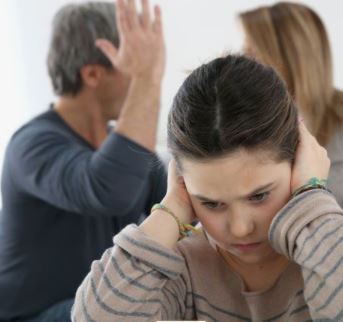Do Children Have a Say in the Custody Battle?
Divorce or separation are emotionally taxing even when the couple did not have children together and nor are they contesting anything. It can become exceptionally challenging when the divorce of a married couple or separation of an unmarried couple involves minor children. Kids love and need both parents in their lives. This is true except for extreme cases when the child would be safer without access to the mother or father. In most situations, both parents also love their children and want the very best for them. The problem is they don’t necessarily agree on what that should be, particularly when it comes to custody.
California Laws Regarding a Child’s Input in Custody Cases
Although family law court judges and state law don’t allow children the sole discretion to decide which parent they want to live with, most judges will consider input from older teenagers. If fact, California has a statute providing guidelines for this type of situation. Under Family Code 3042, subsections A through D, family law judges should must consider the following:
- A: If the child has sufficient emotional and mental capacity to reason about custody or visitation, family court should consider the child’s wishes when making an initial custody determination or modifying an existing one.
- B: The court must control who examines child witnesses and the manner of questioning to protect the child’s best interests.
- C: Family court judges should allow children over age 14 the opportunity to address the court in custody manners unless he or she determines doing so is not in the child’s best interests. In this case, the judge must provide a written defense of his or her decision.
- D: These sections of Family Code 3042 do not expressly prohibit children age 13 and under from addressing the court if a judge decides it’s in the child’s best interests to do so.
Kids ages 14 and older may have a strong preference about which parent they live with, but this doesn’t mean that they’re mature enough to exercise sound judgment about the situation. For example, an older teenager may react to the pending divorce by blaming one parent and directing all poor behavior only toward the mother or father. This could cause the child in a divorce case to state that he or she wants to live with the other parent even when that clearly isn’t in his or her best interest.
In cases where both parents express interest in custody and neither demonstrates abusive tendencies or questionable behavior, the judge will try to implement a shared custody arrangement. He or she will also consider whether the children themselves prefer to split time equally between each parent.
Do Family Law Judges Consider the Input of Younger Children?
Children younger than age 14 tend to approach the situation of disputed custody based on emotion rather than on what is truly best for them. When asked why they want to live primarily with one parent over the other, the child might give a response like these:
- My mom or dad lets me stay up as late as I want
- We only do fun things when I visit my mom or dad
- I’m afraid of making one parent mad if I say I want to live with the other
- I don’t want my mom or dad to be sad or cry
A judge would be much less likely to consider a child’s input with these types of statements. However, the last two could indicate a serious issue with family dynamics and cause the family court to order counseling.
Get Help with Your Custody Case
Garmo & Garmo, Attorneys at Law, understands you’re in a difficult position. Our attorneys will advocate for both you and your children in your custody dispute. Please contact our El Cajon, California office at 619-441-2500 to request a free case review.




